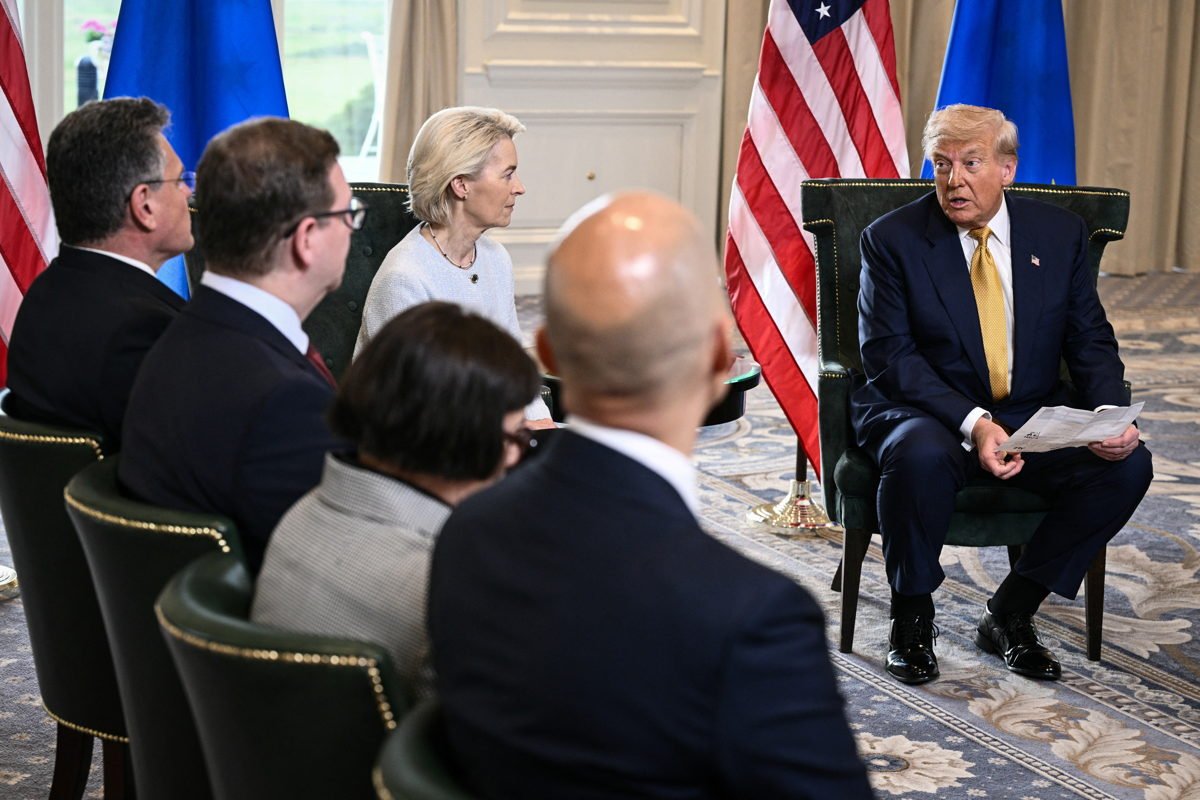Mixed Reactions to New US-EU Trade Agreement in Belgium
The recent trade agreement struck between the United States and the European Union has elicited divided responses in Belgium, with political and economic leaders expressing a blend of relief and apprehension. Some analysts deem the deal a “political humiliation for Europe”.
On Sunday, US President Donald Trump and European Commission President Ursula von der Leyen finalized a trade agreement that establishes a 15 percent baseline tariff on EU goods. While this agreement mitigates the US’s earlier threat to impose 30 percent tariffs, it nonetheless marks a significant increase compared to previous years.
“Although it brings an end to a period of uncertainty, this is not an agreement that we can applaud.”
Belgian Prime Minister Bart De Wever characterized the agreement as “a moment of relief but not of celebration” via a post on X. On Monday, Foreign Minister Maxime Prévot shared similar sentiments, emphasizing the deal’s shortcomings despite resolving immediate uncertainties.
Need for Stability Amidst Economic Pressures
Prévot acknowledged the necessity of stability and the restoration of transatlantic dialogue, but recognized the overwhelming pressure this agreement places on Belgian industry. Belgium’s exports represent over 90 percent of its GDP, with nearly 8 percent directed to the US.
Assuring businesses of governmental support, Prévot asserted, “This agreement must mark the beginning of our efforts to strengthen our economic foundation,” highlighting the need for simplified European regulations and further enhancement of the internal market.
Business Community Responses
Business responses reflect similar ambivalence. Pieter Timmermans, CEO of the Federation of Belgian Enterprises, viewed the deal as providing “a source of stability after months of uncertainty”. Conversely, Hans Maertens from the Flemish business organization Voka expressed that while relieved to avoid a trade war, the 15 percent tariff is “bad news” for Flemish companies.
“An agreement is a step forward, but by no means the end.”
Flemish regional Minister-President Matthias Diependaele estimated that the agreement could impose a potential tariff burden of €4.46 billion on the region. He reiterated that Flemish interests remain the top priority, emphasizing the need for vigilance during the agreement’s implementation.
Sector-Specific Impacts
This trade deal could severely impact key sectors within Belgium, particularly pharmaceuticals and metal production. Uncertainty lingers regarding import duties on pharmaceuticals under the new agreement, and the existing 50 percent tariffs on steel and aluminum will continue to apply.
With several strategically positioned ports such as Antwerp and Ghent being vital to international trade, North Sea Port’s CEO Cas König predicted only limited repercussions, noting that its trade relations with the US predominantly involve imports.
Critique from Experts
Some Belgian experts maintain a more critical view of the agreement. Marc De Vos, an expert at the Itinera think tank, described the trade deal as “a political humiliation for Europe”, pointing to the evident weaknesses and divisions within the continent.
“We have already paid three times this summer: for defense spending, for American weapons for Ukraine, and now for a trade deal that will cost us more than it will bring in,” he asserted.
“Europe is psychologically incapable of imagining a world without the United States.”
De Vos characterized the agreement as “not a good deal, but the least bad alternative to a trade war,” emphasizing Europe’s lack of a cohesive vision and the persistent hesitance to assert itself independently on the global stage. “We have too little common vision, too little courage. And so we roll in the dust three times, this summer alone,” he condemned.
In summary, as Belgium grapples with the implications of the new trade agreement, both political and economic stakeholders remain alert to its potential impacts while reflecting on the broader geopolitical context, reports 24brussels.










